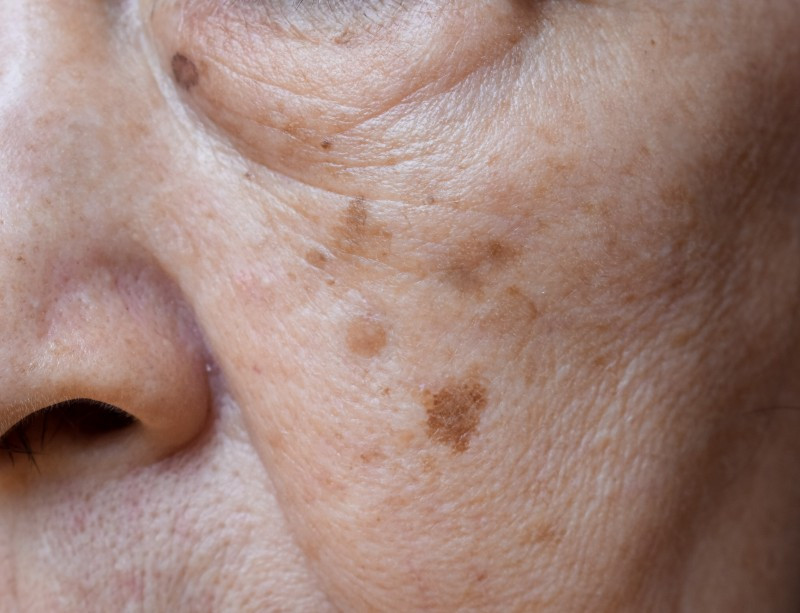As you age, your skin is subject to change. It changes physiologically, and its appearance transitions as well. Wrinkles, age spots, and other less-than-ideal changes take place on the skin of most aging people. But there's no need to despair – some dietary supplements can help your skin stay healthy and retain its youthful qualities.
Skin Changes Due to Aging
Most of the effects of aging on skin can be boiled down to a few things. First, the
dermis and epidermis (top two layers of skin) become thinner with age. Next, a decrease in elasticity, due to dryness, causes skin to wear down with age.
Another general reason for skin changes is an increased susceptibility to damage from the elements, such as heat and ultraviolet light. Natural decreases in blood vessels, sweat glands, and the levels of certain compounds in the skin all contribute to an increased susceptibility to the elements. In accordance with this reality, sustained exposure to UV light is actually the most prominent cause of wrinkles, irregular pigmentation, as well as negative effects on skin and skin health.
The typical symptoms of
aging skin include dryness and itching, wrinkles, increased susceptibility to bruises, and age spots; Many of these skin changes are furthered by dry skin. There are different ways to approach treating these symptoms, including the use of medications, topical ointments, and, of course, sunscreen when outdoors.
Remedies for Wrinkles, Age Spots and More
Some dietary supplements on the market contain nutrients and boast healthy qualities that work to bolster the health of your skin. Making use of the right dietary nutrients could make a significant, long-term difference in the health and appearance of your skin.
Coenzyme Q10, or CoQ10, is a
naturally occurring antioxidant that your body produces and uses for preserving cell health, and producing energy. Research has provided evidence that CoQ10 levels decline with age. Supplementing with CoQ10 can prevent effects of the release of free radicals, which includes many of the signs of aging that occur on skin.
Collagen is a protein that is crucial to your body's structural components, including the skin, bones, joints, and more. It is
abundant in the body and taking more through supplementation can slow the signs of aging. Oral supplementation of collagen has been shown to correlate with increased skin moisture and elasticity.
Glucosamine, when taken as an oral supplement, has been shown in at least one study to
reduce fine lines and visible wrinkles. Glucosamine does this by bolstering your body's production of hyaluronic acid, which contributes to plump quality of healthy skin.
Vitamin A is one of the best vitamins for anti-aging uses. Vitamin A is key for skin health over time because it contributes to
healthy sebaceous glands, which are skin glands that benefit the scalp by way of producing oils that moisturize the skin.
Vitamin C is a nutrient that combats
oxidative stress. By doing so, vitamin C is able to promote cell health and cell reproduction, which in turn can reduce wrinkles and improve your complexion.
The above dietary supplements, taken properly and regularly, can produce the bodily conditions that prevent wrinkles and other signs of aging on the skin. Consider how these, in tandem with a healthy lifestyle, can help you or your family have healthy aging skin. Talk to your medical provider before taking any of these or other dietary supplements.

